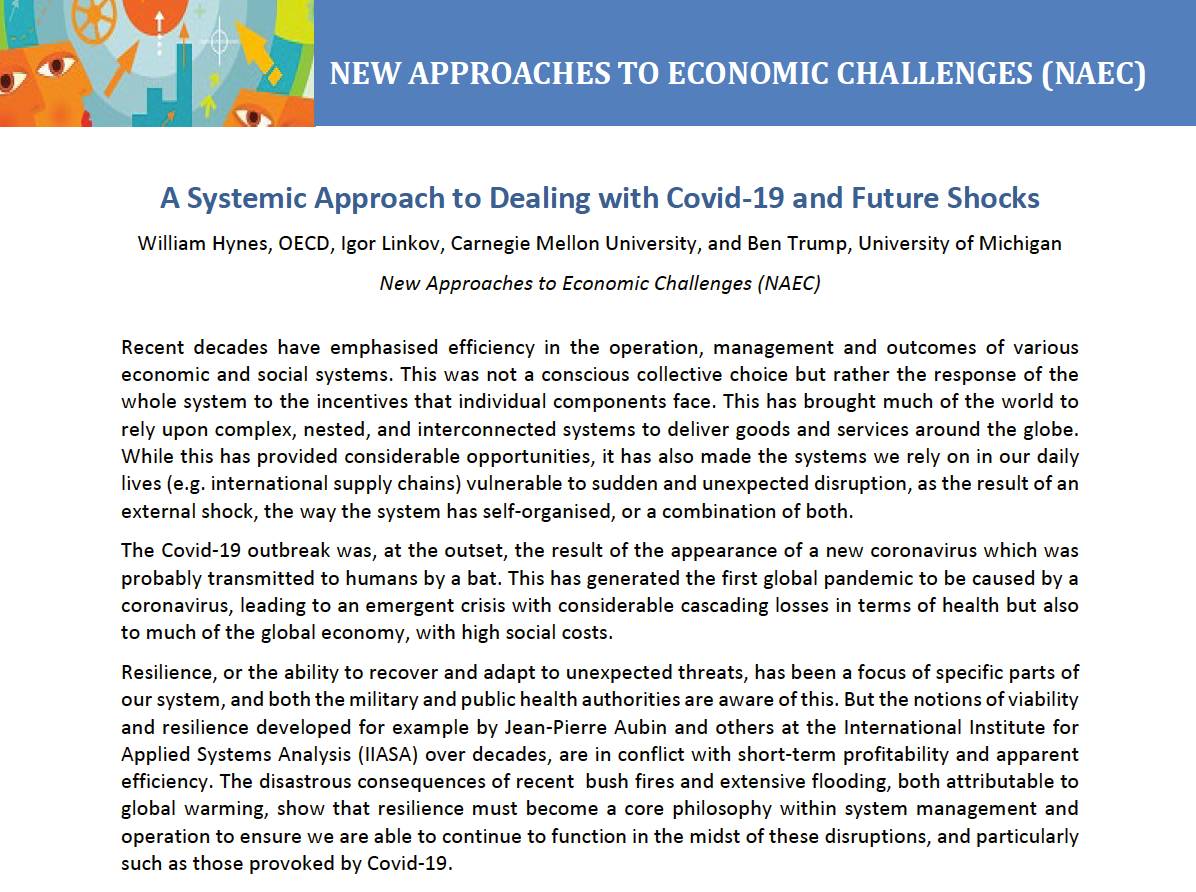
Recent decades have emphasised efficiency in the operation, management and outcomes of various economic and social systems. This was not a conscious collective choice but rather the response of the whole system to the incentives that individual components face. This has brought much of the world to rely upon complex, nested, and interconnected systems to deliver goods and services around the globe. While this has provided considerable opportunities, it has also made the systems we rely on in our daily lives (e.g. international supply chains) vulnerable to sudden and unexpected disruption, as the result of an external shock, the way the system has self-organised, or a combination of both.
The Covid-19 outbreak was, at the outset, the result of the appearance of a new coronavirus which was probably transmitted to humans by a bat. This has generated the first global pandemic to be caused by a coronavirus, leading to an emergent crisis with considerable cascading losses in terms of health but also to much of the global economy, with high social costs.
Resilience, or the ability to recover and adapt to unexpected threats, has been a focus of specific parts of our system, and both the military and public health authorities are aware of this. But the notions of viability and resilience developed for example by Jean-Pierre Aubin and others at the International Institute for Applied Systems Analysis (IIASA) over decades, are in conflict with short-term profitability and apparent efficiency. The disastrous consequences of recent bush fires and extensive flooding, both attributable to global warming, show that resilience must become a core philosophy within system management and operation to ensure we are able to continue to function in the midst of these disruptions, and particularly such as those provoked by Covid-19.
The OECD response has been twofold: address immediate concerns, and propose an approach to dealing with the longer-term issues the virus highlights. In the short term, that means identifying the people and activities most affected, assessing how measures to help them will impact others, and underlining that difficult trade-offs between health, economic, social, and other goals are inevitable. In the longer term, an approach that reacts to the systemic origins and impacts of major shocks is needed if policies are to be effective. The Covid-19 crisis also shows how important it is to keep resources in reserve for times when unexpected upheavals in the system prevent it from functioning normally. Furthermore, given the interdependence of our economies and social systems, the virus also highlights the need for international co-operation based on evidence to tackle systemic threats and help avert systemic collapse.


